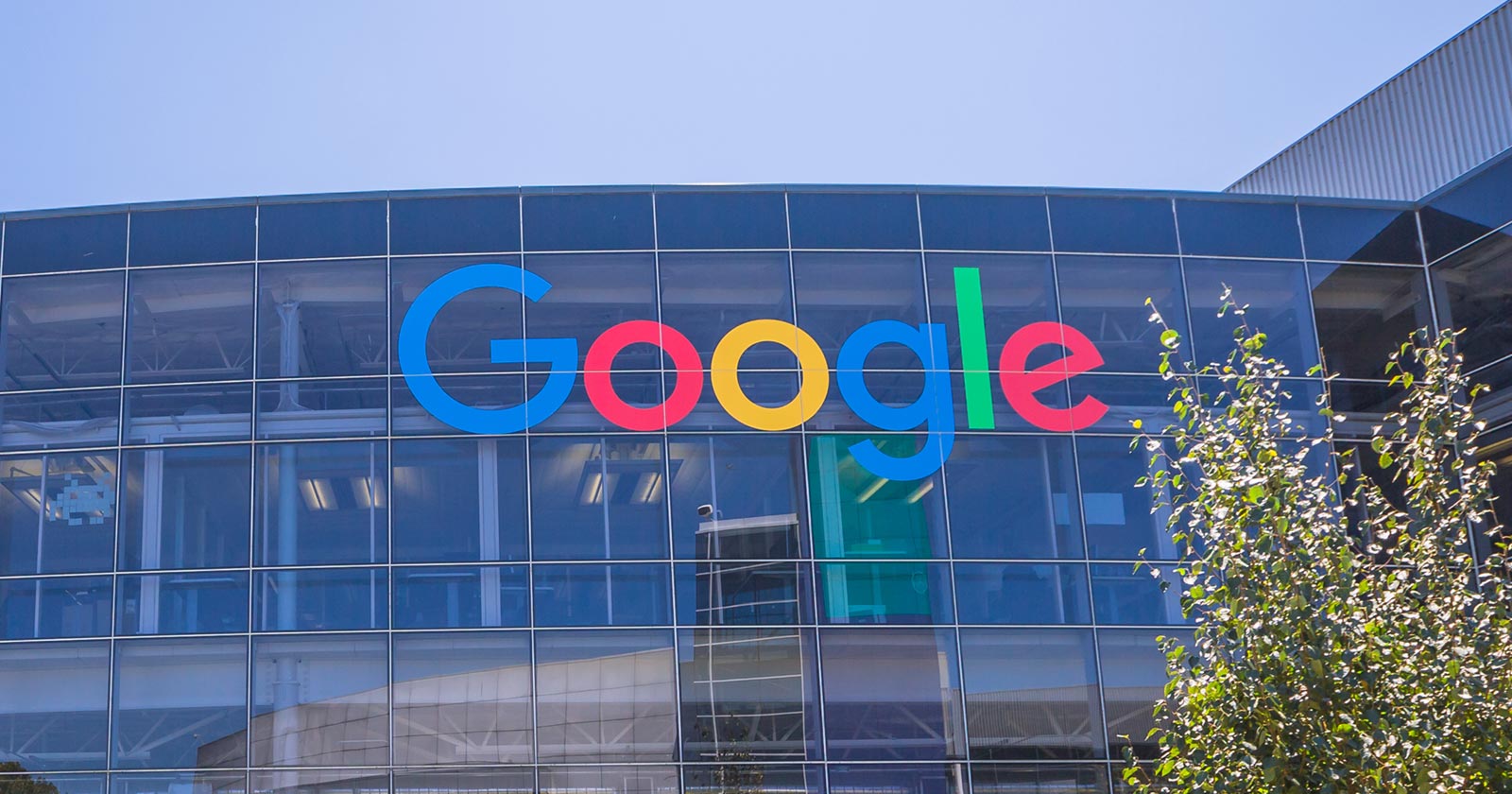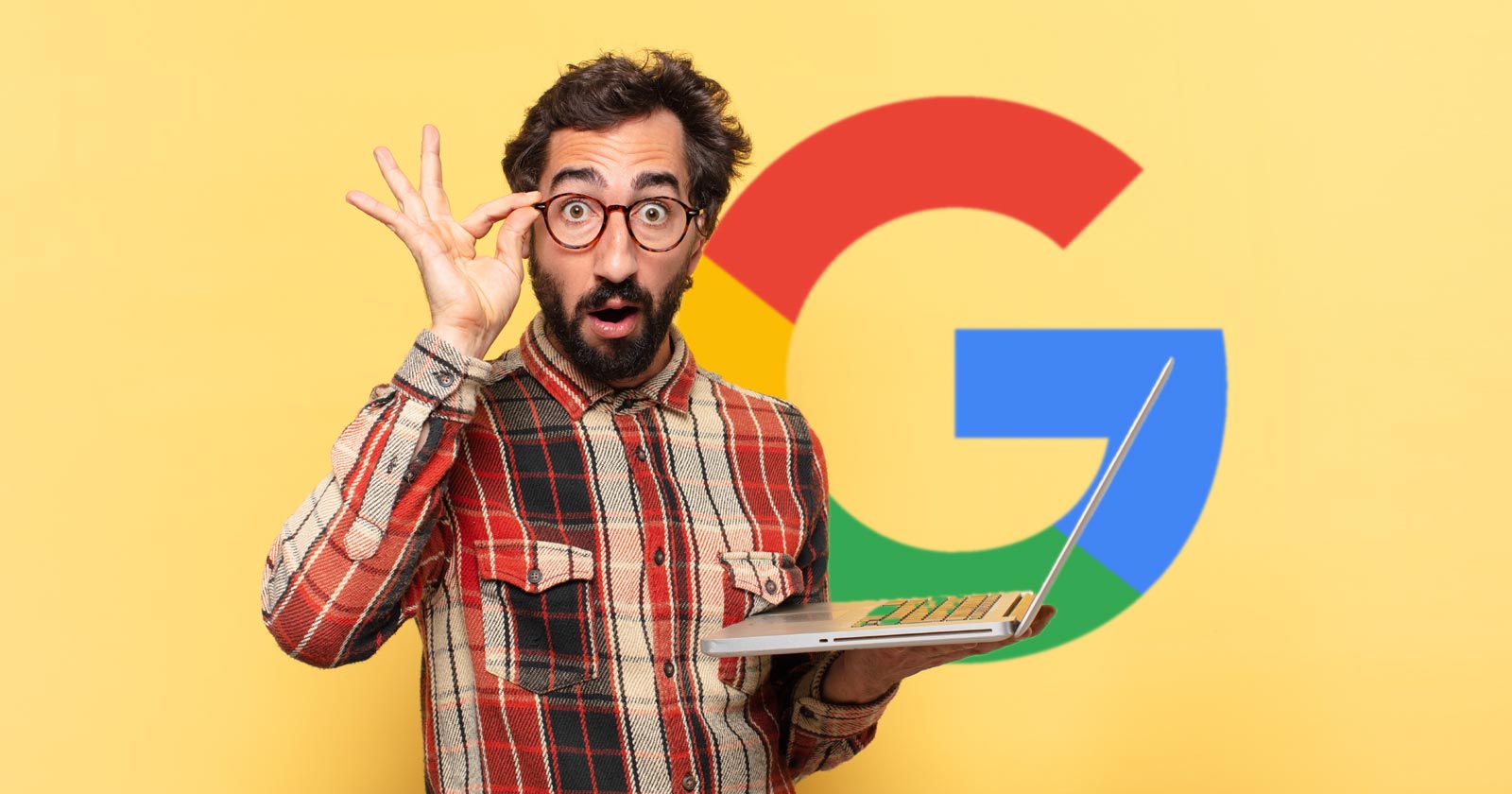SEO
How To Balance SEO And B2B Marketing Goals

Despite the benefits of aligning strategies, marketing and SEO managers don’t always have the same goals when it comes to promoting content, from what I have observed with clients and partners.
Often, SEO professionals are striving to meet their key performance indicators (KPIs) on time, yet depend on the output of the marketing team for success.
Meanwhile, the marketing department strives to deliver a long-term content strategy guided by the broader goals of the CEO and subsequent priorities of the Chief Marketing Officer (CMO) to advance brand awareness and demand generation strategies, to name but a few.
It is often the macro view of these goals which can lead to SEO not being leveraged to its full potential due to the time taken to yield results or attribute value.
While SEO strategies are often long-term, they are fundamental to maximizing the potential of content marketing and delivering the demand performance to boost exponential growth.
In this article, I present a four-step strategy to align both teams and make sure their goals are met, as well as four best practices to establish harmony between your SEO and marketing efforts.
4-Step Strategy To Balance SEO And B2B Marketing Goals
Avoid ambiguity and establish clear protocols for your creatives to make sure both marketing and SEO goals are met.
1. Create A Brand And Style Guide With SEO In Mind
To ensure SEO and marketing strategies are completely aligned, it is important for brand and style guides to consider SEO.
In other words, rather than SEO being an afterthought, it should be a key component of the marketing process – particularly for content marketing.
Dedicating a chapter to SEO in the brand and content style guides will solidify this relationship and set tasks for SEO pros to advance brand awareness.
This shifts the common “adjust content to rank for SEO” mindset toward the more effective “optimize SEO for marketing” approach, which is especially important for businesses that rely on writers and freelancers to be in charge of their own SEO efforts.
To maintain an amicable tug-of-war between CMO and SEO goals, it is also important for the marketing strategy to allow keywords that rank well but may bend grammatical rules (or not use the C-Suite’s preferred language).
An example is “top of funnel” as an adjective, which ranks better for SEO than the grammatically correct “top-of-funnel.”
Additional tips on what to include in the brand and style guides:
- Suggested and prohibited SEO keyword lists, so managers, new hires, and freelancers can consult the guides easily to avoid ranking for keywords deemed irrelevant.
- List of branded terms that can’t be adjusted for SEO, so the CMO and the marketing team don’t see their strategy impacted by keywords and branded terms that have been “tweaked” to rank better for SEO.
- Key content topics: Define key topics in the guide to advance brand awareness and rank for SEO. Implementing this in the guides (rather than only in a content calendar) makes the content strategy definitive and provides expectations for SEO managers to plan their long-term strategy.
2. Optimize Each Content Asset For SEO And Marketing Goals
Ideally, all content should rank for SEO.
However, the goal of each content piece will likely differ based on the topic covered, its search intent, as well as its role in brand awareness and shaping audience opinion.
Thought leadership, for instance, may present a challenge for implementing SEO, particularly if the author is pitching an innovative, original idea for their audience that has no search intent yet.
In this case, it is better to prioritize “marketing goals” and optimize to boost ranking where possible rather than guide content creation with SEO. This ensures content meets its purpose.
Consider amplifying reach via content syndication and paid media to boost the impact of this content.
On the other hand, content that is highly influenced by search intent, such as FAQs or guides, should focus on SEO first and foremost to inform content creation and rank better for highly-searched queries.
While branding may take a backseat here, it’s important that this content remains aligned.
Thus, to meet both outcomes, planning each piece of content beforehand with a marketing or SEO focus helps to determine KPIs for each asset – as well as guide the production and promotion of content to meet these goals effectively.
However, it is important to strive for harmony between CMO and SEO goals by establishing shared KPIs whenever possible and creating content that advances brand awareness while also ranking for popular queries.
3. Survey Your Audience To Measure The Impact Of SEO On Marketing
Survey your audience to assess if marketing goals are being met with content, as well as the impact of SEO on marketing strategies.
By asking questions about the values your audience associates with your brand as well as the top keywords that come to mind (to evaluate SEO priorities), you can gauge if the overall impression your audience currently forms of your brand is on par with the CMO and marketing team’s goals.
It is important to mention (particularly in this step) that SEO should be seen as a promotion tool for driving brand awareness and long-lasting demand.
Therefore, if the survey results point to values or keywords that are SEO-driven, yet don’t meet marketing expectations, then it is important to adjust the SEO-focused content to deliver the intended brand messaging.
If you wish to test certain assets or topics, then A/B test a “marketing-driven” and “SEO-driven” version to see which engages readers better, as well as survey their brand impressions.
This will provide plenty of intel to guide future content creation for your writers.
4. Create A Content Calendar And Hold Regular Meetings Between Marketing And SEO Managers
After assessing how your audience views your brand, it is time to create a content calendar to address possible unintended brand associations the public has made – all while meeting SEO goals.
Plan your content calendar per quarter, establishing “marketing” and “SEO” goals per topic/asset.
For SEO content, such as pure search intent content, outline the keywords beforehand to avoid unintended off-brand impressions after the content is launched.
As for the marketing content, establish goals for yielding engagement and the purpose of the content (to drive awareness or lead generation, for example), as well as branding goals and promotion methods – since SEO will not be the primary option for driving traffic.
Hold regular meetings between the marketing and SEO managers to discuss the metrics and impressions of the campaign as it is ongoing.
Social listening tools can assess the impact of the content and guide adjustments for writers before the next assets are promoted.
By gauging audience impressions while the campaign is ongoing, it becomes easier to adjust live content on a case-by-case basis, as well as change topics/assets to meet goals in the case of shared KPIs suffering.
4 Best Practices To Maintain Common Ground Between CMO And SEO Needs
Employ these four best practices to maintain harmony between marketing and SEO:
1. Onboard Writers With Marketing And SEO Dos And Don’ts
Onboarding writers, freelance or otherwise, is a crucial task for maintaining brand voice and content goals.
Considering that, it is also important to create an onboarding guide for writers that covers SEO dos and don’ts alongside additional training resources.
Typically, new writers will not be familiar with the minutia of your branding and style guides, so clarifying how to promote brand awareness correctly (such as boilerplate language, product descriptions, recommended adjectives, and allowed/forbidden keywords) will provide guidance for them to meet both marketing and SEO goals.
2. Utilize Social Listening
As mentioned previously, leveraging social listening tools can help to define your audience’s sentiment toward your brand and evaluate the results of your overall messaging.
This, combined with survey feedback, will help you make critical adjustments.
As a result, social listening tools are perhaps the most valuable weapon in your arsenal to balance CMO and SEO needs, so utilize them frequently to collect insights and guide future content creation.
Another approach is to search for your brand name and products on forums and social media channels manually, gaining insights from the way your audience comments on your solutions to evaluate if the discourse is aligned with your intended messaging and current SEO priorities.
3. Develop A Detailed Content Strategy
To meet your overarching content marketing and SEO goals, establish a strategy based on your content calendar to ensure that any content produced has a key role in driving your desired outcomes.
This should include how content pieces interlink and support one another, regardless of whether they are marketing or SEO-driven.
For example, start by defining an innovative thought leadership piece and link this out to supplementary videos, short blog posts, and podcast episodes.
As you analyze the performance of this content piece, you will be able to expand the topic to match the ICP’s buyer journey and search intent.
This could take the shape of a foundational SEO-focused piece for the topic that matches search intent and acts as a hub linking out to all the supplementary content that also ranks for keywords to drive brand traffic.
This strategy, combined with a consistent publishing cadence for your editorial calendar, will ensure that campaigns meet intended marketing and SEO outcomes.
While having content that speaks to marketing and SEO focuses independently, interlinking and guiding content with a long-term strategy is essential.
The best-performing content pieces are those that blend both priorities, establishing harmony between ranking for SEO keywords and leading the way in your industry with innovative thought leadership.
If done successfully, this will build long-term demand generation for your business.
4. Establish Joint Paid Media And Social Media Strategies And Goals
Bridge the gap between CMO and SEO by building upon both focuses with complimentary paid media and social media goals/strategies.
By viewing both as promotion methods for marketing and SEO goals, it is possible to fine-tune when to utilize paid media and social media to boost a variety of content pieces across a campaign that supports both SEO and marketing initiatives.
The more developed your content strategy and calendar, the better interlinked your content will be, facilitating your ability to craft omnichannel campaigns that deliver on all KPIs.
Conclusion
Meeting the demands of both the CMO and SEO manager requires a mindful approach that balances ranking in search engine results pages with promoting positive brand awareness.
This article presents best practices and a four-step strategy to achieve this balance, however, there are additional elements that you can incorporate into your content calendar to better meet CMO and SEO goals.
Developing a content strategy for the top-of-the-funnel (TOFU) stage, where search intent is less niche, is a good example of how to advance brand awareness while ranking for highly searched keywords.
You can then utilize this foundation to incentivize the lead to go through the buyer’s journey and consume thought-provoking, innovative content optimized with more specific keywords that further your marketing efforts.
By considering content marketing and SEO as two sides of the same coin, you can better align content creation to feed into each other, build an overall positive brand experience for your audience, and therefore leverage the full potential of your marketing efforts to drive demand.
More resources:
Featured Image: dzxy/Shutterstock
SEO
Google Clarifies Vacation Rental Structured Data

Google’s structured data documentation for vacation rentals was recently updated to require more specific data in a change that is more of a clarification than it is a change in requirements. This change was made without any formal announcement or notation in the developer pages changelog.
Vacation Rentals Structured Data
These specific structured data types makes vacation rental information eligible for rich results that are specific to these kinds of rentals. However it’s not available to all websites. Vacation rental owners are required to be connected to a Google Technical Account Manager and have access to the Google Hotel Center platform.
VacationRental Structured Data Type Definitions
The primary changes were made to the structured data property type definitions where Google defines what the required and recommended property types are.
The changes to the documentation is in the section governing the Recommended properties and represents a clarification of the recommendations rather than a change in what Google requires.
The primary changes were made to the structured data type definitions where Google defines what the required and recommended property types are.
The changes to the documentation is in the section governing the Recommended properties and represents a clarification of the recommendations rather than a change in what Google requires.
Address Schema.org property
This is a subtle change but it’s important because it now represents a recommendation that requires more precise data.
This is what was recommended before:
“streetAddress”: “1600 Amphitheatre Pkwy.”
This is what it now recommends:
“streetAddress”: “1600 Amphitheatre Pkwy, Unit 6E”
Address Property Change Description
The most substantial change is to the description of what the “address” property is, becoming more descriptive and precise about what is recommended.
The description before the change:
PostalAddress
Information about the street address of the listing. Include all properties that apply to your country.
The description after the change:
PostalAddress
The full, physical location of the vacation rental.
Provide the street address, city, state or region, and postal code for the vacation rental. If applicable, provide the unit or apartment number.
Note that P.O. boxes or other mailing-only addresses are not considered full, physical addresses.
This is repeated in the section for address.streetAddress property
This is what it recommended before:
address.streetAddress Text
The full street address of your vacation listing.
And this is what it recommends now:
address.streetAddress Text
The full street address of your vacation listing, including the unit or apartment number if applicable.
Clarification And Not A Change
Although these updates don’t represent a change in Google’s guidance they are nonetheless important because they offer clearer guidance with less ambiguity as to what is recommended.
Read the updated structured data guidance:
Vacation rental (VacationRental) structured data
Featured Image by Shutterstock/New Africa
SEO
Google On Hyphens In Domain Names

Google’s John Mueller answered a question on Reddit about why people don’t use hyphens with domains and if there was something to be concerned about that they were missing.
Domain Names With Hyphens For SEO
I’ve been working online for 25 years and I remember when using hyphens in domains was something that affiliates did for SEO when Google was still influenced by keywords in the domain, URL, and basically keywords anywhere on the webpage. It wasn’t something that everyone did, it was mainly something that was popular with some affiliate marketers.
Another reason for choosing domain names with keywords in them was that site visitors tended to convert at a higher rate because the keywords essentially prequalified the site visitor. I know from experience how useful two-keyword domains (and one word domain names) are for conversions, as long as they didn’t have hyphens in them.
A consideration that caused hyphenated domain names to fall out of favor is that they have an untrustworthy appearance and that can work against conversion rates because trustworthiness is an important factor for conversions.
Lastly, hyphenated domain names look tacky. Why go with tacky when a brandable domain is easier for building trust and conversions?
Domain Name Question Asked On Reddit
This is the question asked on Reddit:
“Why don’t people use a lot of domains with hyphens? Is there something concerning about it? I understand when you tell it out loud people make miss hyphen in search.”
And this is Mueller’s response:
“It used to be that domain names with a lot of hyphens were considered (by users? or by SEOs assuming users would? it’s been a while) to be less serious – since they could imply that you weren’t able to get the domain name with fewer hyphens. Nowadays there are a lot of top-level-domains so it’s less of a thing.
My main recommendation is to pick something for the long run (assuming that’s what you’re aiming for), and not to be overly keyword focused (because life is too short to box yourself into a corner – make good things, course-correct over time, don’t let a domain-name limit what you do online). The web is full of awkward, keyword-focused short-lived low-effort takes made for SEO — make something truly awesome that people will ask for by name. If that takes a hyphen in the name – go for it.”
Pick A Domain Name That Can Grow
Mueller is right about picking a domain name that won’t lock your site into one topic. When a site grows in popularity the natural growth path is to expand the range of topics the site coves. But that’s hard to do when the domain is locked into one rigid keyword phrase. That’s one of the downsides of picking a “Best + keyword + reviews” domain, too. Those domains can’t grow bigger and look tacky, too.
That’s why I’ve always recommended brandable domains that are memorable and encourage trust in some way.
Read the post on Reddit:
Read Mueller’s response here.
Featured Image by Shutterstock/Benny Marty
SEO
Reddit Post Ranks On Google In 5 Minutes

Google’s Danny Sullivan disputed the assertions made in a Reddit discussion that Google is showing a preference for Reddit in the search results. But a Redditor’s example proves that it’s possible for a Reddit post to rank in the top ten of the search results within minutes and to actually improve rankings to position #2 a week later.
Discussion About Google Showing Preference To Reddit
A Redditor (gronetwork) complained that Google is sending so many visitors to Reddit that the server is struggling with the load and shared an example that proved that it can only take minutes for a Reddit post to rank in the top ten.
That post was part of a 79 post Reddit thread where many in the r/SEO subreddit were complaining about Google allegedly giving too much preference to Reddit over legit sites.
The person who did the test (gronetwork) wrote:
“…The website is already cracking (server down, double posts, comments not showing) because there are too many visitors.
…It only takes few minutes (you can test it) for a post on Reddit to appear in the top ten results of Google with keywords related to the post’s title… (while I have to wait months for an article on my site to be referenced). Do the math, the whole world is going to spam here. The loop is completed.”
Reddit Post Ranked Within Minutes
Another Redditor asked if they had tested if it takes “a few minutes” to rank in the top ten and gronetwork answered that they had tested it with a post titled, Google SGE Review.
gronetwork posted:
“Yes, I have created for example a post named “Google SGE Review” previously. After less than 5 minutes it was ranked 8th for Google SGE Review (no quotes). Just after Washingtonpost.com, 6 authoritative SEO websites and Google.com’s overview page for SGE (Search Generative Experience). It is ranked third for SGE Review.”
It’s true, not only does that specific post (Google SGE Review) rank in the top 10, the post started out in position 8 and it actually improved ranking, currently listed beneath the number one result for the search query “SGE Review”.
Screenshot Of Reddit Post That Ranked Within Minutes
Anecdotes Versus Anecdotes
Okay, the above is just one anecdote. But it’s a heck of an anecdote because it proves that it’s possible for a Reddit post to rank within minutes and get stuck in the top of the search results over other possibly more authoritative websites.
hankschrader79 shared that Reddit posts outrank Toyota Tacoma forums for a phrase related to mods for that truck.
Google’s Danny Sullivan responded to that post and the entire discussion to dispute that Reddit is not always prioritized over other forums.
Danny wrote:
“Reddit is not always prioritized over other forums. [super vhs to mac adapter] I did this week, it goes Apple Support Community, MacRumors Forum and further down, there’s Reddit. I also did [kumo cloud not working setup 5ghz] recently (it’s a nightmare) and it was the Netgear community, the SmartThings Community, GreenBuildingAdvisor before Reddit. Related to that was [disable 5g airport] which has Apple Support Community above Reddit. [how to open an 8 track tape] — really, it was the YouTube videos that helped me most, but it’s the Tapeheads community that comes before Reddit.
In your example for [toyota tacoma], I don’t even get Reddit in the top results. I get Toyota, Car & Driver, Wikipedia, Toyota again, three YouTube videos from different creators (not Toyota), Edmunds, a Top Stories unit. No Reddit, which doesn’t really support the notion of always wanting to drive traffic just to Reddit.
If I guess at the more specific query you might have done, maybe [overland mods for toyota tacoma], I get a YouTube video first, then Reddit, then Tacoma World at third — not near the bottom. So yes, Reddit is higher for that query — but it’s not first. It’s also not always first. And sometimes, it’s not even showing at all.”
hankschrader79 conceded that they were generalizing when they wrote that Google always prioritized Reddit. But they also insisted that that didn’t diminish what they said is a fact that Google’s “prioritization” forum content has benefitted Reddit more than actual forums.
Why Is The Reddit Post Ranked So High?
It’s possible that Google “tested” that Reddit post in position 8 within minutes and that user interaction signals indicated to Google’s algorithms that users prefer to see that Reddit post. If that’s the case then it’s not a matter of Google showing preference to Reddit post but rather it’s users that are showing the preference and the algorithm is responding to those preferences.
Nevertheless, an argument can be made that user preferences for Reddit can be a manifestation of Familiarity Bias. Familiarity Bias is when people show a preference for things that are familiar to them. If a person is familiar with a brand because of all the advertising they were exposed to then they may show a bias for the brand products over unfamiliar brands.
Users who are familiar with Reddit may choose Reddit because they don’t know the other sites in the search results or because they have a bias that Google ranks spammy and optimized websites and feel safer reading Reddit.
Google may be picking up on those user interaction signals that indicate a preference and satisfaction with the Reddit results but those results may simply be biases and not an indication that Reddit is trustworthy and authoritative.
Is Reddit Benefiting From A Self-Reinforcing Feedback Loop?
It may very well be that Google’s decision to prioritize user generated content may have started a self-reinforcing pattern that draws users in to Reddit through the search results and because the answers seem plausible those users start to prefer Reddit results. When they’re exposed to more Reddit posts their familiarity bias kicks in and they start to show a preference for Reddit. So what could be happening is that the users and Google’s algorithm are creating a self-reinforcing feedback loop.
Is it possible that Google’s decision to show more user generated content has kicked off a cycle where more users are exposed to Reddit which then feeds back into Google’s algorithm which in turn increases Reddit visibility, regardless of lack of expertise and authoritativeness?
Featured Image by Shutterstock/Kues
-

 PPC7 days ago
PPC7 days agoCompetitor Monitoring: 7 ways to keep watch on the competition
-

 WORDPRESS6 days ago
WORDPRESS6 days agoTurkish startup ikas attracts $20M for its e-commerce platform designed for small businesses
-

 PPC7 days ago
PPC7 days ago31 Ready-to-Go Mother’s Day Messages for Social Media, Email, & More
-

 PPC6 days ago
PPC6 days agoA History of Google AdWords and Google Ads: Revolutionizing Digital Advertising & Marketing Since 2000
-

 WORDPRESS7 days ago
WORDPRESS7 days agoThrive Architect vs Divi vs Elementor
-

 SEARCHENGINES7 days ago
SEARCHENGINES7 days agoMore Google March 2024 Core Update Ranking Volatility
-

 MARKETING5 days ago
MARKETING5 days agoRoundel Media Studio: What to Expect From Target’s New Self-Service Platform
-

 SEARCHENGINES6 days ago
SEARCHENGINES6 days agoGoogle Search Results Can Be Harmful & Dangerous In Some Cases















You must be logged in to post a comment Login